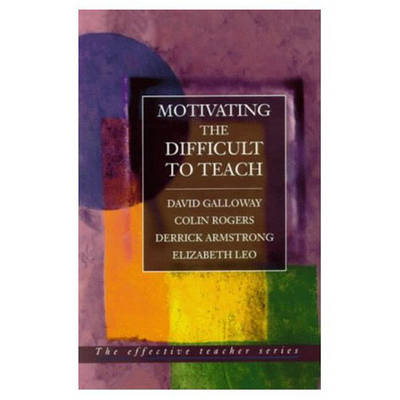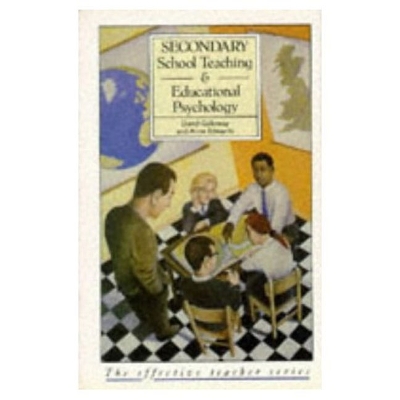Effective Teacher, The
4 total works
Primary School Teaching and Educational Psychology
by David M. Galloway and Anne Edwards
Drawing upon extensive research, David Galloway and Anne Edwards analyse the increasing pressures on teachers from the national curriculum and other recent legislation. They look carefully at childrens' learning and behavioural difficulties and show how educational psychology can extend our understanding of teacher's day-to-date work in the classroom. Primary Teaching and Educational Psychology is a refreshing and at times controversial examination of primary teaching and the application of educational psychology. It will be essential reading for trainee teachers and will stimulate more experienced teachers to re-evaluate their current practices.
Motivating the Difficult to Teach
by David M. Galloway, Colin Rogers, and Derrick Armstrong
The Assessment of Special Educational Needs
by David M. Galloway, Derrick Armstrong, and Sally Tomlinson
The debate about special needs provision has increased dramatically over the last 15 years, however, despite the widespread concern over both learning and behavioural difficulties, there have been few attempts to analyse in detail the process of assessment by which children are being identified as having special educational needs.
Drawing upon research carried out by the authors, this book fills that gap by examining the process in detail. It considers the assessment process itself and how it affects and is affected by other areas of school policy - in some cases causing tension and conflict such as parental participation, the use and allocation of resources and multi-professional decision-making. A feature of the book is its analysis of the impact of the National Curriculum and the local management of schools (LMS) provision for special needs.
Secondary School Teaching and Educational Psychology
by David M. Galloway and Anne Edwards
A companion volume to Primary School Teaching and Educational Psychology, this book concerns itself with the day-to-day business of teaching in a secondary school. Throughout the book four themes reoccur: that teachers can best understand the development of children by observing their learning and their relationships within school; that assessment and evaluation are integral to effective teaching; that effective teaching and learning depend on both teacher and child being able to monitor own progress and to find solutions to problems that occur; and finally that there must be explicit recognition of the common-ground between educational psychology and other disciplines such as sociology, philosophy and the history of education.



